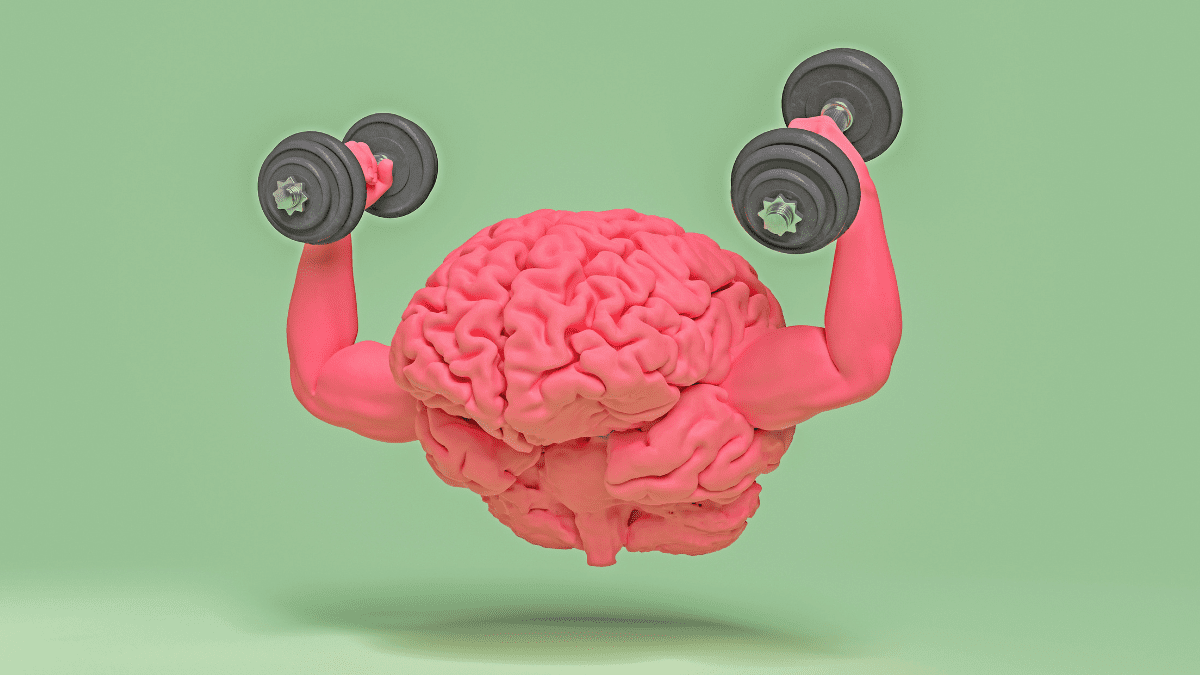Men’s Mental Health: The Truth Society Doesn’t Want to Face
Men’s mental health is a silent crisis. Society demands strength, but suppression harms them. Why is this overlooked? Let’s break the stigma, start conversations, and support men’s well-being today!

Men’s Mental Health: The Silent Crisis No One Talks About
Men’s mental health is in crisis, yet few people acknowledge it. Many men suffer in silence, afraid to ask for help. Society tells them to be strong, tough, and unemotional. But this mindset is dangerous. Suppressing emotions does not make problems disappear. It only makes them worse.
Depression and anxiety affect men just as much as women. However, men are far less likely to seek help. Instead, many turn to unhealthy coping mechanisms. Some overwork themselves. Others rely on alcohol, drugs, or isolation. In extreme cases, untreated mental health struggles lead to suicide.
Modern life adds even more pressure. Social media, constant distractions, and digital overload worsen mental health. Taking breaks from screens can help reset the mind. If you feel overwhelmed, a digital detox might be the first step. Learn how to do it effectively in this guide on resetting your brain.
Ignoring men’s mental health is no longer an option. It’s time to break the stigma, recognize the warning signs, and offer real support. Let’s explore why men struggle, how to help, and what changes need to happen now.
The Stigma Around Men’s Mental Health
Society expects men to be strong, fearless, and in control. From a young age, they are told to “man up” and hide their emotions. Crying is seen as weakness. Asking for help is considered unmanly. These harmful beliefs stop men from speaking up when they need support.
Many men suffer in silence. Instead of sharing their struggles, they bottle up emotions. This can lead to stress, anxiety, and even depression. Without a support system, many turn to unhealthy coping mechanisms. Some overwork themselves. Others rely on alcohol or drugs. Some isolate themselves from loved ones.
Why men struggle to open up about mental health
Fear of judgment is a major reason men stay silent. Many worry they will be seen as weak if they talk about their emotions. In workplaces, friendships, and even relationships, vulnerability is often discouraged. This creates a cycle where men feel they must handle everything alone.
Cultural expectations also play a big role. In many societies, men are raised to be protectors and providers. They are taught to put others first. This often leaves no room for emotional self-care. When struggles arise, they feel pressure to push through instead of seeking help.
Men also experience mental health differently than women. Instead of expressing sadness, they may show anger or irritability. Many do not even realize they are dealing with depression or anxiety. Because symptoms look different, mental health issues in men often go unnoticed.
The dangerous effects of ignoring men’s mental health
Ignoring mental health problems does not make them disappear. In fact, they often get worse. Suppressing emotions can lead to chronic stress, heart problems, and sleep disorders. It also increases the risk of substance abuse. Many men use alcohol or drugs to numb emotional pain. This only worsens their struggles.
Even more concerning, untreated mental health issues can lead to suicide. Studies show that men die by suicide at a significantly higher rate than women. To learn more about this alarming reality, read this research on men and suicide rates.
How to change the conversation about men’s mental health
Breaking the stigma starts with open discussions. Men need safe spaces where they feel comfortable sharing their struggles. Talking about mental health should be normalized, not shamed. Encouraging therapy and emotional expression can save lives.
Men’s struggles are real, and they matter. It’s time to listen, support, and take action. Next, let’s explore how to recognize the hidden signs of mental struggles in men.
The Hidden Signs of Mental Struggles in Men
Many men battle mental health issues without showing obvious symptoms. Instead of expressing sadness, they hide their pain. Men’s mental health struggles often appear in different ways. Recognizing the signs early can make a huge difference.
How men’s mental health symptoms look different
Men rarely talk about their emotions. Instead of admitting they feel anxious or depressed, they may act distant or irritable. Many withdraw from friends and family. Others bury themselves in work to avoid dealing with their feelings.
Anger is a common sign of hidden struggles. Rather than showing sadness, men often express frustration. Small problems may trigger big reactions. This can strain relationships and push people away.
Substance use is another warning sign. Many men turn to alcohol or drugs to escape emotional pain. This coping mechanism may seem harmless at first, but it often leads to addiction. Research shows that men are more likely to self-medicate with alcohol than women. To learn more, check out this study on men, addiction, and mental health.
Physical symptoms of men’s mental health struggles
Mental health does not only affect emotions. It also impacts the body. Stress, anxiety, and depression often lead to chronic fatigue and body aches. Many men experience frequent headaches, muscle tension, or stomach issues.
Sleep problems are another red flag. Some men struggle with insomnia and overthink at night. Others sleep too much to escape their emotions. Disruptions in sleep patterns can worsen mental health over time.
Changes in appetite can also signal deeper issues. Some men lose interest in food, while others overeat for comfort. Rapid weight loss or gain may be linked to emotional struggles.
Why men hide their mental health struggles
Fear of judgment keeps many men silent. Society often tells them to “tough it out.” As a result, they feel ashamed to admit they need help. Many do not even recognize their symptoms as mental health issues.
Work culture plays a role too. High expectations and pressure to perform make men afraid to show weakness. Many push themselves too hard, ignoring their own needs.
Lack of awareness also contributes to the problem. Since men’s symptoms look different, they often go unnoticed. Many assume that if they are not crying or talking about sadness, they are fine.
Men’s mental health struggles can stay hidden for years. But the signs are there. Recognizing them is the first step toward healing. Next, let’s explore the link between men’s mental health and suicide.

The Link Between Men’s Mental Health & Suicide
Suicide is a growing crisis among men. Studies show that men die by suicide at much higher rates than women. Yet, men’s mental health struggles are often ignored. Many men never seek help before it’s too late.
Why suicide rates are higher for men
Men often struggle in silence. They feel pressure to appear strong, even when they are suffering. Society teaches them to handle problems alone. Because of this, they avoid therapy or talking to loved ones.
Many men also choose more lethal methods when attempting suicide. This increases the likelihood of a fatal outcome. Women attempt suicide more often, but men are far more likely to succeed.
Substance abuse plays a role as well. Many men turn to alcohol or drugs instead of facing their emotions. This can cloud judgment and increase impulsive decisions. Research shows that alcohol is a major risk factor for suicide in men. To learn more, check out this study on alcohol, depression, and male suicide.
Warning signs of suicidal thoughts in men
Suicide does not always come with obvious warnings. Many men appear fine on the outside while struggling internally. However, there are subtle signs to watch for.
Sudden mood changes are a red flag. If a man goes from extreme sadness to calmness, it could mean he has made a decision. Giving away personal items or making final plans can also be a sign.
Increased risk-taking is another warning. Some men engage in reckless behavior, like dangerous driving or substance abuse. This may be an unconscious cry for help.
Social withdrawal is also common. A man who stops communicating, avoids friends, or loses interest in hobbies may be struggling. When men pull away from loved ones, it often means they feel hopeless.
How to support men struggling with mental health
Open conversations save lives. Encouraging men to talk about their feelings can make a huge difference. Many just need someone to listen without judgment.
Normalizing therapy helps too. Many men avoid counseling because they see it as a weakness. Changing this mindset can encourage them to seek help.
Checking in regularly is also important. Asking simple questions like, “How are you really doing?” can open the door for deeper conversations. Small efforts can prevent a tragedy.
Men’s mental health is a life-or-death issue. Recognizing the signs and offering support can save lives. Next, let’s explore ways to break the cycle and improve men’s mental health.
Breaking the Cycle: How to Support Men’s Mental Health
The stigma around men’s mental health needs to change. Too many men suffer in silence. They believe asking for help makes them weak. This mindset is dangerous. Breaking the cycle starts with open conversations, better support, and changing outdated beliefs.
Encouraging men to talk about mental health
Men often avoid discussing their emotions. Many were raised to believe that talking about feelings is not masculine. This stops them from seeking help, even when they need it most.
Creating a safe space is key. Friends, family, and workplaces must encourage open dialogue. A simple conversation can make a difference. Asking, “How are you really doing?” can open the door to deeper discussions.
Therapy should be normalized. Many men hesitate to seek professional help. They fear judgment or believe therapy won’t work. Highlighting the benefits of mental health therapy for men can change this perception. To learn more, check out this guide on therapy and emotional support for men.
Redefining masculinity for better mental health
Traditional masculinity often focuses on strength, independence, and control. While these traits can be positive, they should not come at the cost of emotional well-being. Men should be encouraged to express their feelings without fear of ridicule.
Role models matter. Public figures who openly discuss their mental health struggles help break the stigma. Athletes, actors, and business leaders who share their experiences show that vulnerability is not weakness. It is strength.
Workplace culture needs to shift as well. Many men feel pressure to always be productive. Burnout is common. Employers can help by promoting work-life balance and providing mental health resources.
Practical ways to improve men’s mental health
Daily habits make a difference. Exercise, healthy eating, and quality sleep all impact mental well-being. Movement reduces stress and boosts mood. Nutritious food supports brain health. Good sleep improves focus and emotional stability.
Social connections also help. Isolation worsens mental health. Men should prioritize friendships and community activities. Spending time with supportive people reduces stress and creates a sense of belonging.
Stress management is crucial. Mindfulness, meditation, and hobbies can improve emotional resilience. Small changes can lead to big improvements over time.
Men’s mental health should never be ignored. Breaking the cycle requires awareness, support, and action. Next, let’s explore practical steps men can take to improve their mental well-being.

Practical Steps Men Can Take for Better Mental Health
Taking care of men’s mental health is essential. Many men struggle in silence, but small changes can make a big impact. Prioritizing mental well-being does not mean weakness. It is a sign of strength. Simple habits can improve mood, energy, and overall health.
Daily habits that boost men’s mental health
Exercise is one of the best tools for mental well-being. It reduces stress, boosts mood, and increases energy. Even short walks or simple workouts can help. Physical activity releases endorphins, which improve overall mental health.
Eating well also plays a role. Food affects mood, brain function, and energy levels. A diet rich in protein, healthy fats, and fiber supports emotional stability. Processed foods and excessive sugar can cause mood swings and fatigue.
Quality sleep is just as important. Poor sleep increases stress and anxiety. A consistent sleep routine improves focus and emotional balance. Turning off screens before bed and creating a relaxing nighttime routine can help.
The power of social connections
Isolation makes mental health struggles worse. Building strong relationships reduces stress and increases happiness. Spending time with friends, family, or support groups creates a sense of belonging.
Men often avoid opening up to others. However, talking about feelings with a trusted friend can make a big difference. Having someone to listen can ease stress and prevent emotional buildup.
Volunteering is another great way to connect. Helping others improves self-esteem and provides a sense of purpose. Research shows that volunteering can boost mental health and reduce stress. To learn more, check out this guide on volunteering and emotional well-being.
Mindfulness and stress management techniques
Mindfulness helps manage stress and improve focus. Deep breathing, meditation, and journaling can calm the mind. Even a few minutes of mindfulness each day can reduce anxiety.
Spending time in nature is another way to reset the mind. Fresh air and sunlight boost mood and reduce stress hormones. Outdoor activities like hiking or fishing can help men relax and clear their minds.
Seeking professional help is also important. Therapy is not just for crises. It helps men navigate challenges, build coping skills, and improve relationships. Talking to a mental health professional can provide clarity and support.
Men’s mental health improves with small, daily actions. Taking care of mental well-being leads to a happier, healthier life. Next, let’s explore why changing the conversation around men’s mental health is so important.
Conclusion: It’s Time to Change the Conversation
Men’s mental health has been ignored for too long. Many men suffer in silence, afraid to ask for help. This must change. Talking about mental health should be normal, not shameful.
Small steps can make a big difference. Encouraging open conversations helps break the stigma. Checking in on friends and family creates support. Seeking help shows strength, not weakness.
Healthy habits also matter. Exercise, good sleep, and strong social connections improve well-being. Managing stress and practicing mindfulness build resilience. Taking care of mental health leads to a happier life.
The truth is clear. Ignoring men’s mental health is dangerous. But awareness, support, and action can save lives. The time to change the conversation is now. Will you be part of it?







